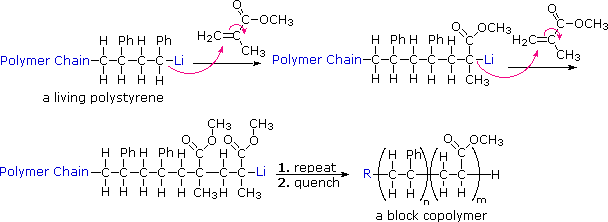Polymers in Medical Care: Improving Clinical Instruments and Treatments
Polymers in Medical Care: Improving Clinical Instruments and Treatments
Blog Article
Making Best Use Of the Prospective of Polymers: Discover the Multifaceted Benefits and Practical Makes Use Of
The multifaceted benefits and sensible uses of polymers continue to advance, providing cutting-edge services to complicated obstacles. By exploring exactly how polymers can boost product sturdiness, drive sustainability campaigns, revolutionize health care remedies, and lead the way for future technological improvements, we can reveal a world of possibilities waiting to be taken advantage of.
Relevance of Polymers in Modern Industries
Polymers play a critical function in modern-day sectors, working as versatile materials that drive development and effectiveness across a wide variety of sectors. These complex molecules, composed of repeated subunits, have reinvented sectors such as automotive, aerospace, electronics, healthcare, and much more. In the automobile industry, polymers have allowed the growth of light-weight yet sturdy elements, boosting fuel effectiveness and total performance. Aerospace industries rely upon polymers for their high strength-to-weight ratio, critical for airplane and spacecraft building. The electronic devices sector advantages from the protecting residential or commercial properties of polymers, vital for producing motherboard and digital tools (Polymers). In addition, polymers are extensively used in the healthcare sector for medicine shipment systems, medical tools, and biocompatible materials. Their adaptability, sturdiness, and cost-effectiveness make polymers crucial in modern-day production procedures, promoting improvements and driving progress in different industries worldwide. Accepting the capacity of polymers is essential to opening more technologies and attending to the developing demands these days's industrial landscape.
Enhancing Item Toughness With Polymers
With a concentrate on long life and resilience, integrating innovative polymer technologies right into item layout has ended up being a foundation of enhancing longevity in modern production procedures. Polymers supply a wide variety of buildings that contribute to the overall sturdiness of items. One crucial benefit is their resistance to deterioration, chemicals, and weathering, making them ideal for use in various markets where exposure to extreme problems prevails.
In addition, polymers can be tailored to meet particular toughness needs, permitting producers to personalize products according to their planned use and expected life-span. By integrating polymers right into item components, suppliers can enhance stamina and effect resistance, lowering the chance of damage or wear over time.
Additionally, polymers are lightweight yet tough, giving durability without including unneeded weight to products. This characteristic is particularly advantageous in industries such as aerospace and automotive, where light-weight products are necessary for enhancing fuel efficiency and total efficiency.
Sustainability Developments Through Polymer Technology
In the world of contemporary manufacturing and item style, the innovative application of polymers is driving substantial innovations in sustainability methods. Polymer innovation plays a crucial duty in improving sustainability by offering options that decrease ecological effect across different industries. One vital element where polymers succeed remains in enabling the advancement of lightweight yet long lasting materials that add to fuel performance in transportation and lower general power usage. In addition, the recyclability and biodegradability of specific polymers better promote sustainable methods by minimizing waste and contamination.
In addition, developments in polymer innovation have actually led to the development of bio-based and eco-friendly polymers, acquired from natural sources such as see plants, that use an even more lasting alternative to conventional petroleum-based plastics. These eco-friendly polymers not only assist minimize dependence on fossil gas but likewise lower greenhouse gas discharges throughout manufacturing. By incorporating these innovative polymers into manufacturing processes, business can minimize their ecological impact and relocate in the direction of more lasting practices, aligning with global efforts to fight environment adjustment and advertise a round economic climate.
Polymers in Healthcare: Revolutionizing Medical Solutions

Among the vital locations where polymers are making considerable strides is in the growth of targeted medicine shipment systems. By encapsulating drugs within polymeric nanoparticles or micelles, scientists can improve drug security, enhance bioavailability, and allow controlled site release, causing much more effective therapy programs with reduced negative effects.
In addition, polymers contribute in the field of regenerative medication, where they are utilized to create scaffolds that simulate the extracellular matrix, offering assistance for cell growth and tissue regrowth. This my site technology holds tremendous pledge for repairing harmed organs, advertising wound recovery, and advancing personalized medication methods.
Fundamentally, the assimilation of polymers in health care is driving innovation, boosting treatment efficacy, and inevitably improving client end results in methods formerly believed unattainable.
Future Applications and Innovations in Polymer Innovation
Progressing at the leading edge of clinical discovery, polymer innovation proceeds to pave the means for groundbreaking applications and developments forming diverse markets. In the world of sustainable packaging, naturally degradable polymers are gaining traction as eco-friendly alternatives to standard plastics. These polymers damage down naturally, decreasing the ecological impact of single-use products. In addition, in the area of electronics, conductive polymers are reinventing wearable modern technology and flexible electronic devices. Their unique buildings allow for the development of stretchable circuits and sensors, allowing brand-new opportunities in health care tracking and clever apparel. In addition, polymer nanocomposites are boosting the mechanical and thermal properties of materials, resulting in stronger and lighter parts in aerospace and automobile industries. Looking in advance, scientists are discovering the possibility of shape-memory polymers for applications in robotics and biomedical tools, where products that can "keep in mind" and go back to their initial shapes use interesting possibilities for technology. As polymer technology continues to evolve, the future holds endless possibilities for groundbreaking advancements throughout different industries.
Final Thought

Report this page